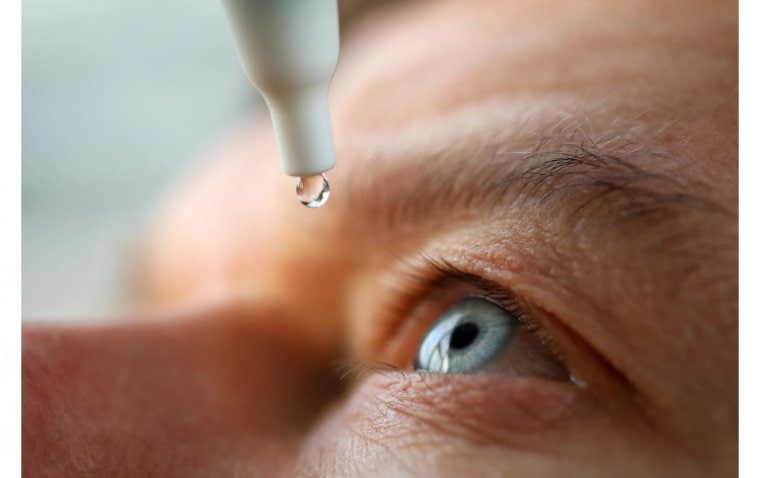What Is the Role of Tears in Maintaining Eye Health

The role of tears in maintaining eye health is a subject of scientific inquiry due to their multifaceted functions.
Tears serve as a protective barrier, safeguarding the ocular surface from external pathogens and foreign substances.
Additionally, tears act as a natural lubricant, ensuring the smooth movement of eyelids over the eyes.
Moreover, tears play a crucial role in preventing dry eye syndrome, a prevalent condition characterized by insufficient tear production.
This article aims to explore the various ways tears contribute to the overall health and well-being of the eyes.
Key Takeaways
- Tears act as a protective barrier, safeguarding the ocular surface from pathogens and foreign substances.
- Tears serve as a natural lubricant, ensuring smooth movement of eyelids over the eyes.
- Tears play a crucial role in preventing dry eye syndrome.
- Tears provide diagnostic information about certain eye conditions.
The Importance of Tears in Eye Health
The role of tears in maintaining eye health is essential for keeping the ocular surface lubricated, protecting against infection, and promoting clear vision.
Tears perform various functions in the eye, beyond emotional expression. They provide lubrication to the ocular surface, ensuring smooth movement of the eyelids over the cornea and conjunctiva. Tears also contain lysozyme, an enzyme that helps to protect against bacterial and viral infections by breaking down the cell walls of microorganisms.
In addition, tears serve as a diagnostic tool for certain eye conditions. Tear film abnormalities or changes in tear composition can indicate underlying ocular diseases, such as dry eye syndrome or Sjögren’s syndrome.
Therefore, understanding the role of tears in eye health is crucial for maintaining ocular well-being and detecting potential eye problems.
How Tears Protect the Surface of the Eye
Another important function of tears is to create a protective barrier on the surface of the eye. Tears are composed of various components, including water, electrolytes, proteins, and lipids. This composition allows tears to not only lubricate the eye but also form a protective film over the ocular surface.
This film helps to prevent the eye from drying out and protects it from foreign particles, such as dust or debris, that may come into contact with the eye. Additionally, tears play a crucial role in maintaining vision clarity.
The smooth and continuous layer of tears helps to ensure that light can pass through the cornea and lens without distortion, leading to clear vision. Without tears, the ocular surface would become dry, leading to discomfort and potentially affecting vision quality.
Tears as a Natural Lubricant for the Eyes
A natural lubricant for the eyes, tears help to keep the ocular surface moist and prevent dryness, discomfort, and potential impact on vision quality. Tears play a crucial role in maintaining the clarity of vision. When the eyes are adequately lubricated, light can pass through the cornea smoothly, ensuring optimal focus and visual acuity.
Insufficient tear production or poor tear quality can lead to blurred vision and difficulty seeing fine details. Moreover, tears are not only essential for physical eye health but also have a connection to emotional well-being. Emotional tears, such as those shed in response to sadness or joy, contain stress hormones and other substances that can help alleviate emotional distress.
Therefore, tears serve a dual purpose, contributing to both the physical and emotional aspects of eye health.
Tears and the Prevention of Dry Eye Syndrome
Tears play a significant role in preventing dry eye syndrome by keeping the ocular surface moist, thus reducing the discomfort and potential impact on vision quality. Dry eye syndrome occurs when there is insufficient tear production or poor tear quality, leading to ocular surface damage.
Tears contain a complex mixture of water, electrolytes, proteins, and lipids that provide lubrication and nourishment to the eyes. Aging can affect tear production and composition, making older individuals more susceptible to dry eye syndrome. The impact of aging on eye health is further exacerbated by environmental factors such as air pollution, dry climates, and prolonged computer use.
Therefore, maintaining adequate tear production and quality is crucial for preventing dry eye syndrome and preserving ocular health, especially as individuals age.
Tears’ Role in Removing Foreign Substances From the Eye
The ocular surface benefits from tears’ ability to remove foreign substances, as they help maintain a clean and clear environment for optimal visual function. Tears serve as a protective barrier, washing away debris and preventing potential damage to the eye.
Moreover, tears also play a role in emotional expression. When experiencing intense emotions such as sadness, joy, or pain, tear production increases, allowing for the release and expression of these emotions.
Tears are composed of water, electrolytes, proteins, lipids, and mucins, each component contributing to the overall function and health of the eye. For instance, proteins help fight off infections, while lipids prevent evaporation and maintain tear stability.
Therefore, tears’ composition directly affects eye health by providing lubrication, nourishment, and protection to the ocular surface.
Frequently Asked Questions
How Often Should I Be Producing Tears to Maintain Good Eye Health?
The tear production frequency necessary to maintain good eye health varies among individuals. Tears provide various benefits for eye health, such as lubrication, protection against infection, and removal of debris. Consult an eye care professional for personalized recommendations.
Can Tears Help in Reducing the Risk of Developing Eye Infections?
Tears play a crucial role in promoting eye lubrication and preventing eye irritation. They help to flush away foreign particles and bacteria, reducing the risk of developing eye infections.
Are There Any Lifestyle Factors That Can Affect Tear Production?
The effects of stress on tear production and the impact of diet on tear production are two lifestyle factors that can affect tear production. These factors can potentially influence the overall health of the eyes.
Can Excessive Tear Production Be a Sign of an Underlying Eye Condition?
Excessive tear production may indicate an underlying eye condition. It is important to understand the potential causes and seek medical evaluation to identify any possible issues related to tear production and overall eye health.
What Are Some Common Symptoms of Dry Eye Syndrome and How Can Tears Help Alleviate Them?
Common treatments for dry eye syndrome include artificial tear drops, prescription eye drops, and lifestyle changes. Proper tear production is essential in preventing eye damage by lubricating the eyes, washing away debris, and maintaining a healthy ocular surface.








